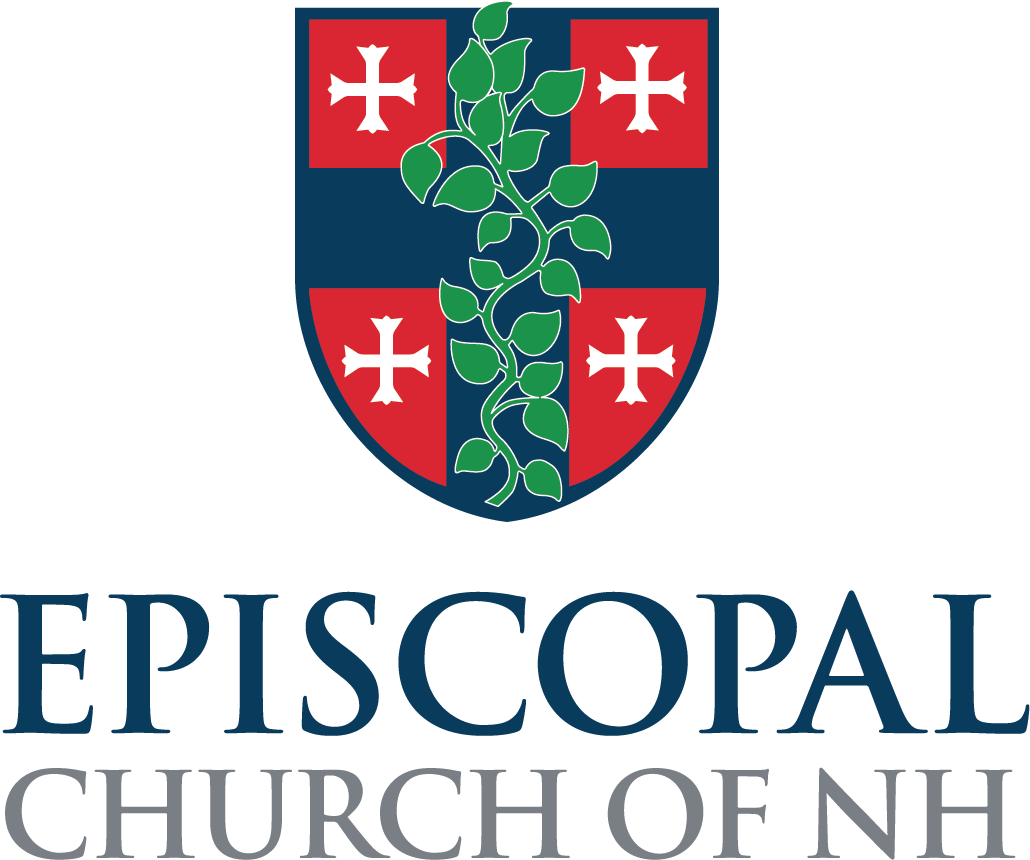133 bishops and bishops-elect at Camp Allen in Navasota, Texas. Photo courtesy of The Episcopal Church.
For the first time since meeting in Minneapolis in the fall of 2019, the House of Bishops came together this past week at Camp Allen outside of Houston, Texas. Though the many months of gathering electronically during the COVID-19 pandemic had made me even more of a homebody that I already was, I found this meet to be especially renewing. I return to New Hampshire with a refreshed sense of our purpose and mission as a servant of our God and Savior Jesus Christ for the sake of a world that finds itself in turmoil.
There are a number of highlights that are worthy of reporting to my beloved Church in New Hampshire:
First, with the guidance of Episcopal priest and mystic, Cynthia Bourgeault, we began our time together with some theological and spiritual re-grounding. We reacquainted ourselves and contemplated our relationship, both personally and as a body, to the God who has chosen to be with humanity. Not as a God of manipulation who sought protection from risks and changes of the human condition, but as one who in Christ, “emptied himself and took the form of a human, choosing out of freedom to allow himself to suffer death, even death on a cross.” That great self-emptying — the free divine choice to be honest, humble, and hospitable — is the path by which we can fully share the life of God and find a hopefulness that is strong and resilient. By now, that way of thinking about our life in God as Christians in New Hampshire won’t be a surprise, as it’s been the theme I have tried to restate continually since becoming your bishop.
Second, we were honest about what we are experiencing as a church and a people. We discussed openly the “existential threats” to our church. We named them: the decline in church membership, the lack of adequately trained ordained and lay leadership to fill vacancies and guide congregations through this period of tremendous change, and the marginalization of most of the mainline denominations away from a place of prominence and privilege in the halls of society’s power, even as many of us still cling to notions of a post-WWII heyday when many of our parish buildings were constructed and filled and Sunday Schools were burgeoning. We face all these internal church stresses within the context of our society’s deepening political divisions, the strenuous national racial reckoning, and the worsening global climate crisis.
Third, we heard from our bishop in Europe who, in addition to describing the wave of war refugees pouring into Western Europe, emphasized that we cannot be naïve about the threats to world democracies posed by the capricious and isolated dictator in Moscow who seems ever more bent on a path of widening mayhem that could lead us all into a time of international tribulation. In Putin we have a man in Moscow who is counting on the fact that the US is so divided, and the cohesion of our society so compromised, that we would not know how to respond to his longed-for aggressions.
Tribulation and trial are not new realities for us followers of Jesus. Stresses and storms decline, and even death is no match for a faith that follows a God who chose to enter humankind in a land occupied by a despotic empire, and to suffer death, even death on a cross, so that God’s glorious life could be shared with all. It always seems like a new truth, but the Last Supper, Gethsamene, Golgotha and the Empty Tomb, are all events that all happened at once, simultaneously in the mind of God and in our divine liturgies of Holy Week.
These may seem like ever-darkening times — and they may in fact be — but I am so struck by the depth of fellowship we share in the Spirit of God alive in our church; from the House of Bishops to the smallest gathering of faithful disciples in New Hampshire. I witnessed a pledge from one of the more conservative of our bishops to accompany a cherished friend in Christ — a newly consecrated black and gay bishop — when we gather as bishops at the Lambeth Conference later this summer. We were unanimous in our support of three Pastoral Letters (learn more here) concerning our continue prayers and efforts to resolve the violence and injustices in Palestine and Israel, to support families of LGBTQ+ citizens and fellow Christians who are targets of demeaning legislative actions in many states (including New Hampshire), and repudiating the war in Ukraine and pledging to support efforts for peace, diplomacy and care for refugees, especially those who are most vulnerable.
In a poem written in the eve of WWII, W.H. Auden wrote: We must learn to love each other or die.
Believe it or not, and I hope you do believe it, how we love — or do not love — our neighbor has cosmic effects. Reconciliation is always local: one by one. This is our purpose as followers of Jesus. Though we may weep in the nighttime, joy comes in the morning. (Psalm 30)
May our Joy this Easter be seen in your neighborhood and around the world!
Yours in Evergreening Hope,
+Rob

